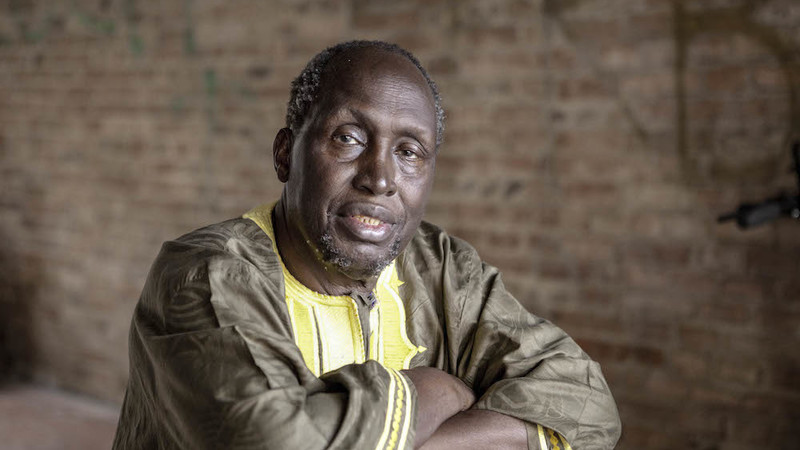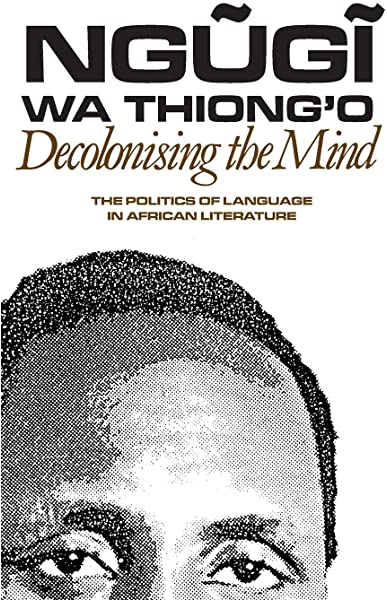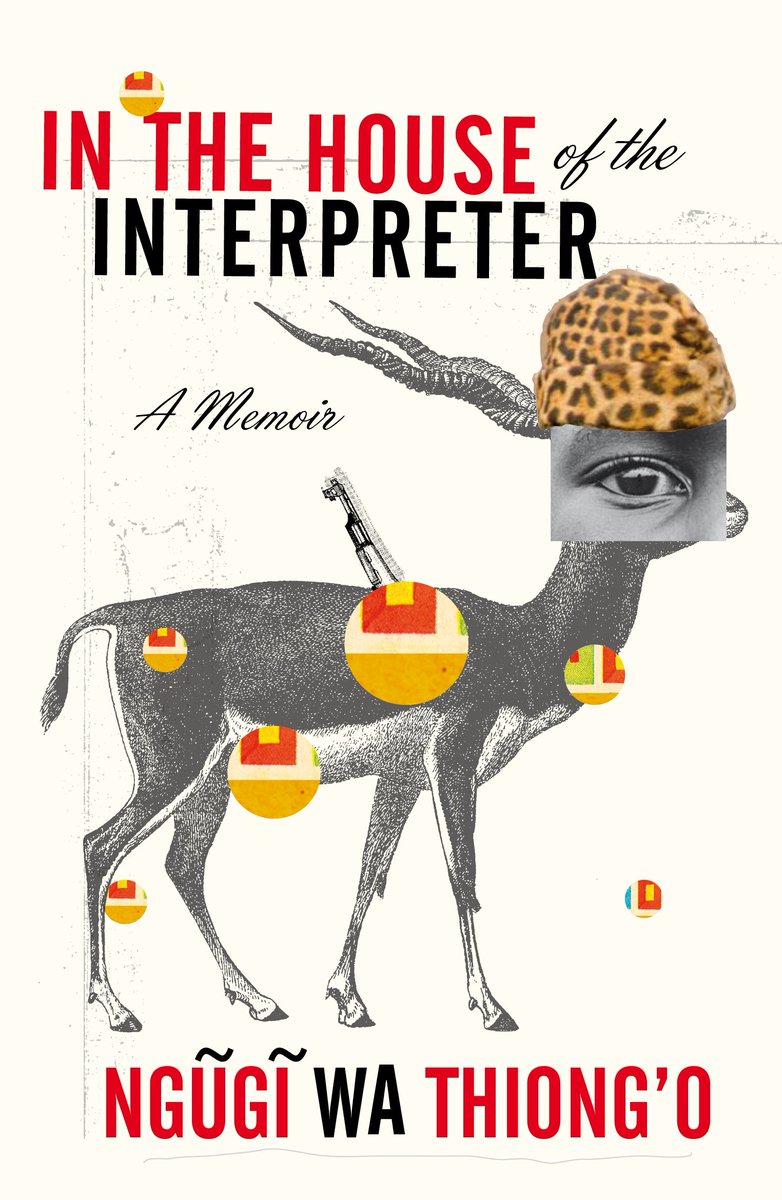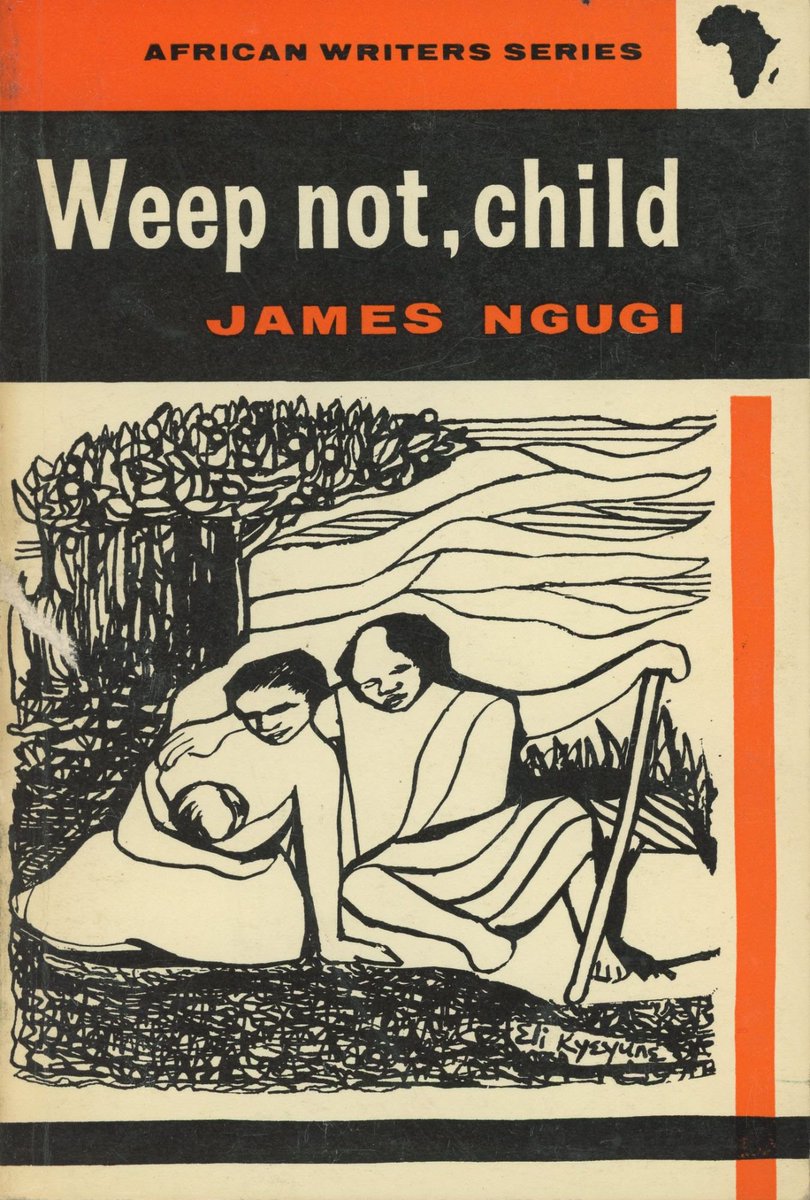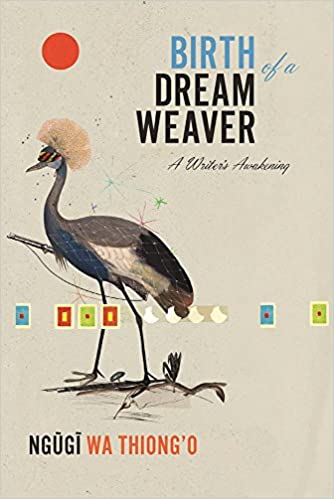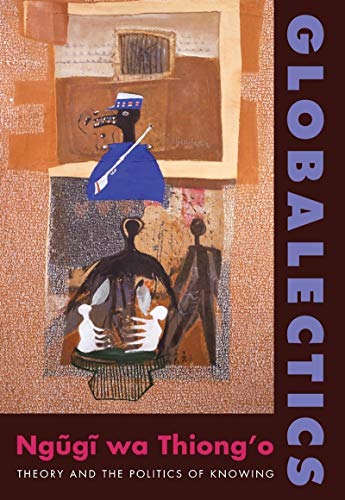Thread warning: A long thread coming on the life and work of Ngũgĩ wa Thiong'o, a world-renowned Kenyan writer, scholar, and social activist. His seminal work, "Decolonising the Mind" is a brilliant exposition of how integral language is to culture and identity.
#Literature
#Literature
Language is a central question in all of Ngũgĩ wa Thiong'o's work. In his work, he proposes a "theory of language", in which "language exists as culture" & "language exists as communication". For him, a language carries the histories, values, and aesthetics of culture within it.
Born in Kamiriithu, near Limuru in Kiambu district, Kenya in 1938, he was soon baptized and given a name (James Ngugi). His first encounter with colonial institutions happened when he was sent to study in The Alliance High School (seen as a civilizing instrument for Africans).
Children who spoke in the local Gĩkũyũ tongue were beaten. English was the language of power, rationality, and intelligence; Gĩkũyũ, which Ngũgĩ would write in again only decades later, signified backwardness-an Africanness that, for the good of its carriers, had to be exorcized.
By the time Ngugi left the Alliance High School, his socialization into a Western-oriented outlook was already complete. The school also conferred on him a class marker in a community that before hadn't known that sort of stratification.
#decolonization #literature
#decolonization #literature
Over time, Ngũgĩ worked to decolonize his own mind - renouncing his baptismal James, and Christianity; ceasing to write in English. “Remember that the first thing that happened to African people [in the Americas] was forced loss of language and names,” he says in his memoir.
“The language of power is English and that becomes internalized,” he explains. “You normalize the abnormal and the absurdities of colonialism and turn them into a norm from which you operate. Then you don’t even think about it.” #decolonization #identity #language #power
As a weapon of divide and rule, it (English) helped create hierarchies within oppressed groups. It marked the truly colonized—those who had shaken off their old ways—as sophisticated and left the rest to gaze upward at a newly-minted elite who had once stood at their side.
It just seems so familiar, right? Macaulay operated from the same belief when he said this about the new class of Indians he helped create, "by degrees fit vehicles for conveying knowledge to the great mass of the population".
Ngũgĩ writes in Moving the Centre: The Struggle For Cultural Freedoms, a collection of essays published in 1993, that “The African bourgeoisie that inherited the flag from the departing colonial powers was created within the cultural womb of imperialism..."
“So even after they inherited the flag, their mental outlook, their attitudes toward their own societies, toward their own history, toward their own languages, toward everything national, tended to be foreign; they saw things through eyeglasses given them by their mentors.”
Echoing what Benedict Anderson wrote in Imagined Communities, that "through shared languages,pasts are restored, fellowships are imagined, and futures dreamed,” Ngũgĩ writes, “To control a people’s culture is to control their tools of self-definition in relationship to others.”
Explaining the disastrous impact colonial education had on his psyche, Ngũgĩ says, “we spoke Gikuyu as we worked in the fields” and “in and outside the home” before the “harmony of language, culture and education was broken by colonial education.” #decolonization #language #Power
“History moves on, theories of liberation march alongside it, but without our languages, we will remain trapped within what literary critic Adam Beach calls the English metaphysical empire.” #decolonization #language #Power
He argues that the colonial education leaves colonized nations "wastelands of non-achievement," and leaves colonized peoples with the desire to "distance themselves from that wasteland". It, as a "cultural bomb" continues to wipe out pre-colonial histories and identities.
"(Colonial Alienation) is like separating the mind from the body so that they are occupying two unrelated linguistic spheres in the same person. On a larger scale, it is like producing a society of bodiless heads and headless bodies." #decolonization #language #Power
Resistance to this Colonial Alienation is possible by making an investment in one’s own culture/resources and "securing the base". He explains, "We must make sure our languages, our resources – the totality of our being is the base from which we launch ourselves into the world.”
"I am in an argument with those who say that writing in an African language denies other Africans and other peoples access to their work. Mark you, the same is never said of writers who write in European languages, whose works are more widely translated."
One of his most recent works, Globalectics: Theory and the Politics of Knowing, deploys a strategy of imagery, language, folklore, and character to "decolonize the mind" and "embraces wholeness, interconnectedness, equality of potentiality of parts, tension, and motion”.
"As a language warrior, I want to join all those others in the world who are fighting for marginalized languages. Languages are like musical instruments. You don’t say, let there be a few global instruments, or let there be only one type of voice all singers can sing.” @rahuldev2

 Read on Twitter
Read on Twitter